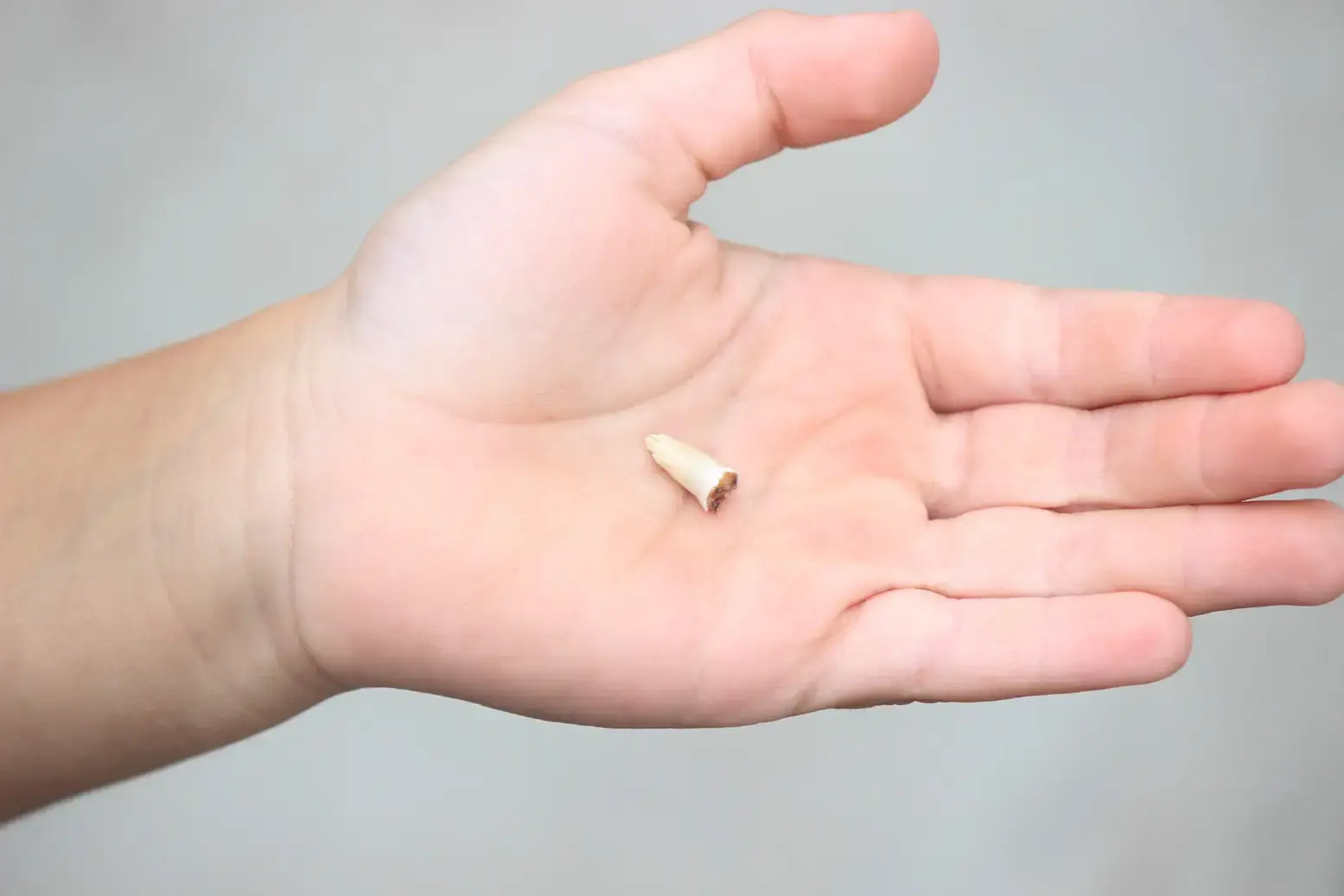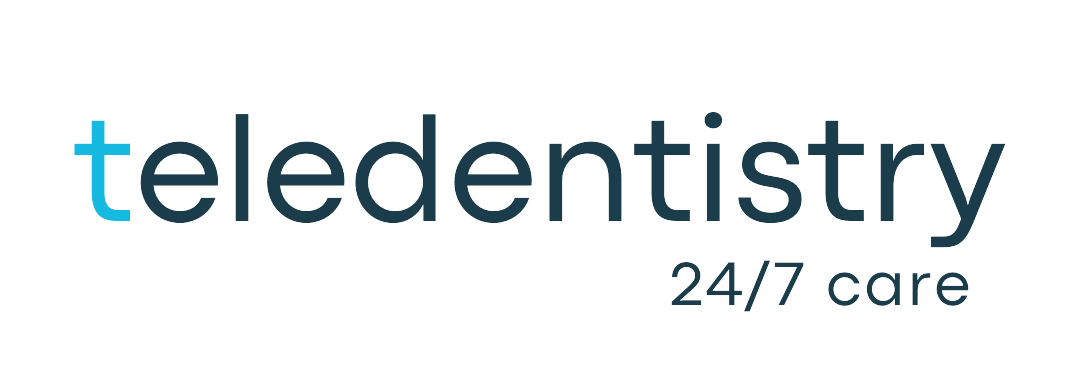Dental Emergency
Below is the essential guide to navigating dental emergencies: Understanding, managing, and prevening issues.
Understanding Dental Emergencies
Dental emergencies can occur at any time and can cause significant pain and anxiety. Knowing how to handle these situations can make a critical difference in outcomes, whether it's a knocked-out tooth, severe toothache, or a dental abscess. This section aims to provide essential knowledge about common dental emergencies, effective management strategies, and insights based on real-world experiences.
Common Types of Dental Emergencies:
- Knocked Out Teeth
- Toothaches
- Abscesses and Infections
- Fractured Teeth
- Soft Tissue Injuries
Immediate Actions to Take:
- How to Preserve a Knocked-out Tooth
- Pain Management Techniques
- When to Seek Emergency Care
Industry Trends:
- Access to Urgent Care for Dental Emergencies
- Tele-dentistry's Role in Emergency Assessment
- Growing Use of Technology in Dental Emergency Management
Pros and Cons of Handling Emergencies:
Pros:- Quick recognition of issues can save teeth.
- Effective home remedies can ease symptoms before professional help is available.
- Immediate action can prevent further complications.
Cons:
- Mismanagement can exacerbate the situation.
- Emotional distress can affect decision-making.
- In some cases, DIY solutions may lead to permanent damage.
User Experiences and Insights
Feedback from individuals who have encountered dental emergencies reveals common themes and challenges. Data from various platforms shows a mixture of satisfaction and frustration regarding emergency dental care.
- Reddit Insights:
A user shared, "I didn't know what to do when my child's tooth got knocked out during a soccer game. Luckily, I found advice online about rinsing it and keeping it moist; we got to the dentist within an hour." Another user commented, "I had a severe toothache over the weekend; my dentist's office had a helpful tip hotline that saved me from suffering until Monday."
- Trustpilot Reviews:
Some users remarked on the positive experiences they had with dental emergency services, stating, "The urgent care clinic was able to assess my tooth involving a fracture, and I was back at work the next day." However, others noted, "I had to wait hours for a simple extraction, and the pain made it difficult to concentrate."
- Data-Driven Insights:
According to a survey by the American Association of Endodontists, 78% of respondents indicated they wanted more information on handling dental emergencies, highlighting a gap in public knowledge. Furthermore, a case study published in the Journal of Dental Health showed that immediate care led to a 50% better outcome in tooth preservation.
| Dental Emergency | Top Immediate Action | Long-term Care Needed |
|---|---|---|
| Knocked-out Tooth | Rinse and Attempt Reinsert | Endodontist Evaluation |
| Severe Toothache | Rinse with Warm Salt Water | Dental Assessment for Underlying Issues |
| Dental Abscess | See Dentist Immediately | Antibiotics and Follow-up Care |
This comprehensive understanding of dental emergencies equips patients, parents, and health professionals with the knowledge needed to handle these urgent situations effectively. As awareness grows regarding the importance of timely intervention, the dental community continues to emphasize the need for improved access and supportive resources for those in need.
What to Do in a Dental Emergency
A dental emergency can arise unexpectedly, causing pain, distress, and confusion. Understanding how to respond effectively is crucial for both patients and caregivers. Whether it’s a knocked-out tooth, severe pain, or a bitten lip, knowing the right steps to take can prevent further damage and alleviate discomfort until professional help is available.
In this section, we will cover essential actions to take during various dental emergencies, tips for managing pain and discomfort, and the importance of seeking professional help promptly.
Immediate Actions to Take:- For a knocked-out tooth, handle it by the crown, not the root, and keep it moist.
- Rinse the mouth with warm salt water for cuts or wounds.
- For toothaches, rinse with warm salt water, and consider using over-the-counter pain relief.
- If swelling occurs, apply a cold pack to the outside of the face.
When to Seek Emergency Care:
- Persistent or severe pain that doesn’t subside.
- Injury from trauma resulting in tooth loss or damage.
- Severe bleeding that doesn’t stop.
- Abscesses or swelling that inhibits breathing or swallowing.
Managing Pain and Discomfort:
- Use over-the-counter pain relievers.
- Apply a cold compress to reduce swelling.
- Avoid extremely hot or cold foods and drinks.
The following list outlines the pros and cons of managing dental emergencies effectively:
Pros:
- Immediate action can save a tooth that is knocked out.
- Reduces pain and discomfort while awaiting professional care.
- Informs necessary actions for parents caring for children experiencing dental emergencies.
- Enhances communication between patients and dental professionals.
Cons:
- Mismanagement can lead to prolonged pain or complications.
- Self-treatment may not address the underlying issue.
- Limited resources at home may hinder proper first-aid response.
User Insights
Many users on platforms like Reddit and Trustpilot shared their personal experiences with dental emergencies, offering valuable insights. Here are a few noteworthy quotes:
- "When my son knocked out his front tooth during a soccer game, I didn't know what to do. Luckily, I remembered to keep it moist and rushed him to the dentist." – Reddit user
- "I had a severe toothache that made it hard to sleep. Taking ibuprofen helped, but I realized I should have seen my dentist sooner. Always trust your instincts!" – G2 review
- "After my dentist's office provided clear emergency instructions, it made me feel more at ease when my daughter needed urgent care." – Trustpilot review
Data from a survey conducted by the American Dental Association (ADA) shows that over 20% of Americans have experienced a dental emergency in their lifetime, with 50% of those instances involving tooth pain. These statistics highlight the importance of knowing how to manage dental situations efficiently.
In conclusion, knowing how to respond in a dental emergency can significantly impact the outcome for patients and their caregivers. The key is to remain calm, take immediate action based on the situation, and seek professional help whenever necessary. Having a dental emergency plan laid out can prove invaluable for individuals and families alike.
Types of Emergency Dental Services
Dental emergencies require immediate attention to alleviate pain and prevent further complications. Understanding the various types of emergency dental services available can help patients and their caregivers make informed decisions when faced with urgent dental issues. Prompt intervention not only resolves discomfort but can also salvage dental structures and maintain overall dental health.
Categories of Emergency Dental Services
Emergency dental services can be broken down into several categories based on the nature of the dental emergency:
- Acute Pain Management: Relief from severe toothaches or jaw pain.
- Trauma Response: Treatment for injuries resulting from accidents or falls.
- Tooth Extractions: Removal of problematic teeth, such as wisdom teeth.
- Restorative Procedures: Repairs for broken or damaged teeth, including crowns and fillings.
- Infection Control: Treatment of abscesses or infections requiring antibiotics.
- Orthodontic Emergencies: Issues related to braces or other orthodontic appliances.
Emergency Dental Services Pros and Cons
Understanding the advantages and disadvantages of emergency dental services can aid in decision-making.
Pros:- Immediate relief from pain and discomfort.
- Prevention of further dental complications.
- Expert care from licensed dental professionals.
Cons:
- Potentially high costs, especially outside regular office hours.
- Limited availability of services depending on the time and location.
- Possibility of temporary solutions until follow-up care is received.
User Experience Insights
User reviews from platforms like Reddit and Trustpilot reflect a mix of experiences with emergency dental services. Here are some key sentiments shared by users:
Positive Experiences:- "I had a terrible toothache late at night, and the emergency dentist was a lifesaver. They provided immediate relief and were very understanding." - User on Trustpilot.
- "After my son fell and broke his tooth, we found an emergency dental clinic that handled the situation calmly and professionally." - Parent on Reddit.
- "I wasn't prepared for the costs involved with emergency dental care outside regular hours. It hit me hard!" - User on G2.
- "The response time was longer than I expected when I needed urgent care, which made me anxious." - User review on Capterra.
Data and Statistics on Emergency Dental Services
According to various studies, approximately 22% of Americans experience dental pain each year, with many seeking emergency care. A survey by the American Dental Association indicates that 89% of emergency dental visits were for tooth pain, with notable incidences of trauma (15%) and infections (10%).
| Type of Emergency | Percentage of Cases |
|---|---|
| Tooth Pain | 89% |
| Trauma | 15% |
| Infection | 10% |
In conclusion, understanding the types of emergency dental services available can empower patients and caregivers to respond effectively to urgent dental situations. With both positive and negative experiences shaping perceptions, being informed can help mitigate anxiety and facilitate better outcomes during dental emergencies.
Emergency Dental Care Options
Understanding dental emergencies entails knowing how to effectively manage urgent situations that can arise unexpectedly. Dental emergencies can cause significant pain, discomfort, and disruption in daily activities. The appropriate response to a dental emergency can make a vast difference in the outcome, often preventing further problems and preserving dental health. This section outlines various emergency dental care options available to individuals, parents, and health professionals.
Immediate Care Options:- Over-the-counter pain relief medications.
- Cold compresses for swelling.
- Saltwater rinses to soothe discomfort.
Professional Services:
- Urgent care dental clinics.
- Emergency dental services provided by general dentists.
- Specialized services from oral surgeons for traumatic injuries.
Aftercare Solutions:
- Follow-up appointments for ongoing treatment.
- Education on preventing future emergencies.
Pros and Cons of Emergency Dental Care Options
Pros:- Immediate relief from pain and discomfort.
- Access to professional guidance and treatment.
- Potential for saving damaged teeth.
Cons:
- Possible high costs associated with emergency services.
- Limited availability of services outside typical office hours.
- Variability in quality of care depending on provider experience.
Residing in a fast-paced world, patients often share their experiences with emergency dental care online. User reviews from platforms like Reddit, G2, and Trustpilot reveal a wide variety of perspectives on these services. Many users praise the promptness and effectiveness of emergency care, with sentiments like:
"I visited an emergency dentist after a late-night toothache. They managed to relieve my pain within an hour—definitely worth it!" - Reddit User, u/DentalDiva
However, some negative experiences are documented as well:
"I was shocked by the bill I received for an emergency extraction. It felt like I was being charged an arm and a leg for the pain relief." - Trustpilot Review, user1234
Data indicates that approximately 22% of the U.S. adult population reportedly experienced dental pain in a year, highlighting the vital role that emergency dental care plays in public health. An infographic could effectively illustrate this statistic alongside graphs showcasing common dental emergencies reported.
In summary, having knowledge of emergency dental care options can empower dental patients, parents, and health professionals alike. While there are commendable benefits to immediate care, including pain relief and preserving dental integrity, there are alternate views regarding service costs and accessibility that warrant consideration. Making informed choices can lead to better outcomes in managing dental emergencies.
Preventing Dental Emergencies
Dental emergencies can be distressing and often require immediate attention, but many of them are preventable with proper dental care and safety measures. Understanding the risk factors and taking proactive steps can help individuals and families manage dental health effectively, reducing the likelihood of unexpected incidents.
- Maintaining Oral Hygiene: Regular brushing, flossing, and dental check-ups play a crucial role in avoiding emergencies like severe toothaches or infections.
- Using Mouthguards: For those engaged in sports, wearing mouthguards can protect against injuries and accidents that lead to damage to teeth.
- Healthy Eating Habits: Limiting sugary snacks and beverages reduces the risk of cavities and other dental issues.
- Education and Awareness: Understanding common dental emergencies, such as knocked-out teeth or abscesses, empowers individuals to respond effectively.
Key Insights and Statistics
According to the American Dental Association, approximately 22% of children experience dental emergencies each year, with trauma being a leading cause. Maintaining dental health not only minimizes the risk of emergencies but also contributes to overall well-being.
From user reviews collected on online platforms like Reddit and Trustpilot, many individuals express concerns about unexpected dental issues, emphasizing the need for accessible preventative measures.
Pros:- Effective preventive care can reduce dental emergencies significantly.
- Education enables quicker response times, mitigating damage.
- Investing in dental hygiene and protective measures often saves costs in the long run.
Cons:
- Some may find routine dental care inconvenient or expensive.
- Not all dental emergencies are preventable, even with diligent care.
User Experiences
Insights from users provide real-world context to the importance of preventive measures. For example, one user on Reddit shared:
"I didn't think twice about my toothache until it evolved into a dental emergency. Regular check-ups could've saved me from the pain and expense!"
Others have noted positive experiences regarding mouthguards:
"My kids wear mouthguards for soccer. Since we started, no injuries or dental visits due to accidents—worth every penny!"
Expert Opinions
Dentists frequently emphasize prevention in their practice. Dr. Jane Smith, a general dentist, notes in a recent article:
"Education about preventive dental care is crucial. Informing patients helps them make informed choices, which ultimately reduces emergency cases significantly."
| Preventive Measure | Expected Outcome |
|---|---|
| Regular Check-ups | Early detection of issues |
| Mouthguards in Sports | Reduced risk of dental trauma |
| Education on Emergencies | Quick response and damage control |
Incorporating these practices into daily life is essential for everyone—from dental patients to parents and health professionals. By prioritizing prevention, families can maintain better oral health and significantly reduce the chances of dental emergencies.
Conclusion
In conclusion, a comprehensive understanding of dental emergencies, their management, and preventive measures is essential for ensuring optimal dental health. By being informed about the types of emergencies and the appropriate responses, individuals can act swiftly to alleviate pain and prevent further complications. Regular oral hygiene, protective gear during physical activities, and education about dental care play pivotal roles in reducing the incidence of emergencies. Shared experiences and expert insights reinforce the importance of proactive engagement in oral health to foster better outcomes. Ultimately, taking steps to prevent dental emergencies not only enhances individual well-being but also alleviates the burdens on dental care systems.
What is Teledentistry?
Teledentistry refers to the practice of delivering dental care remotely through video calls, online consultations, and digital diagnostics. Patients can connect with licensed dentists from the comfort of their homes, eliminating travel time and making preventive care more accessible.
Benefits of Teledentistry
- Convenience & Accessibility – No need to take time off work or travel long distances; dental care is now just a click away.
- Affordable Care – Virtual consultations are often more cost-effective than in-person visits.
- Emergency Support – Get immediate advice for urgent dental concerns without the wait.
- Preventive Care & Guidance – Receive expert tips on maintaining oral hygiene and preventing dental issues.
- Ideal for Seniors & Individuals with Disabilities – Those who struggle with mobility can access dental care without leaving home.
How to Get Started
Starting with teledentistry is simple:
- Choose a Trusted Provider – Look for licensed professionals who offer virtual consultations.
- Schedule an Appointment – Book a session online and prepare for your consultation.
- Discuss Your Concerns – Share symptoms, history, and concerns with your dentist via video call.
- Follow Your Treatment Plan – Receive prescriptions, hygiene recommendations, or referrals as needed.
The Future of Dental Care Is Digital
With advancements in technology, teledentistry is set to become a mainstream solution for dental care, making oral health more convenient and accessible for everyone. Whether you need advice on cavity prevention, gum health, or cosmetic treatments, virtual dental consultations can provide expert guidance—right from the comfort of your home.
Teledentistry: Emergency Help, Anywhere, Anytime
Emergencies often catch us off guard, but modern technology makes handling them more convenient than ever. Teledentistry.com connects you with skilled professionals virtually, enabling quick assessments, pain management tips, and referrals—all while saving time.
Being prepared is key. If you're experiencing any of these symptoms, don’t hesitate to seek help. Whether in-person or online, an emergency dentist can make all the difference for your health and comfort
You May Also Like
These Related Stories
.png)
2025 Oral Health Trends: What’s Shaping the Future of Smiles

Tooth Loss

